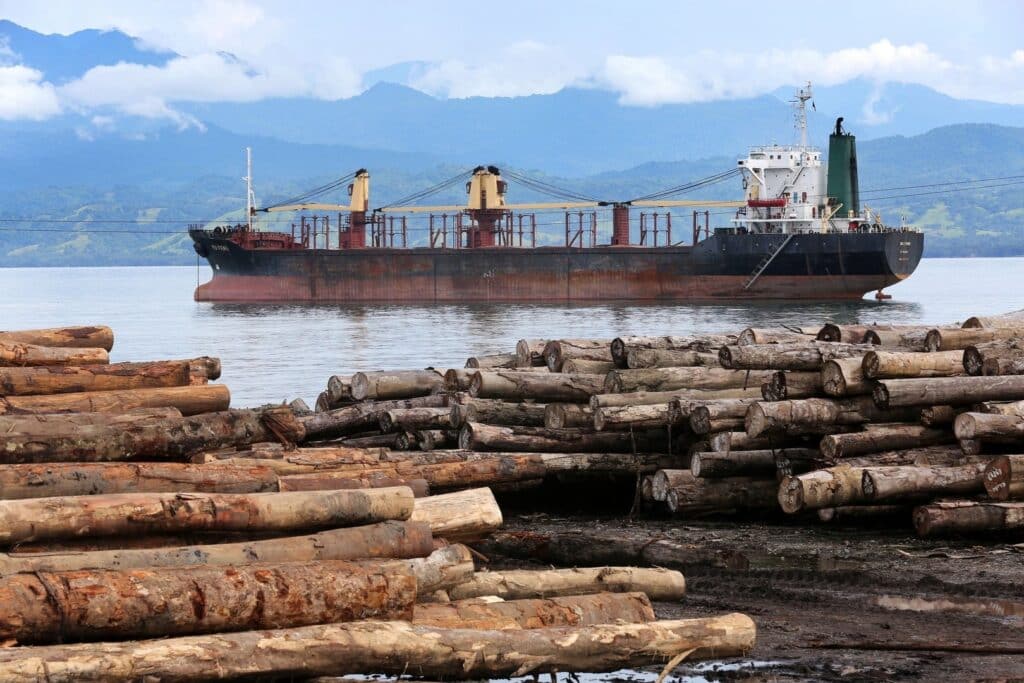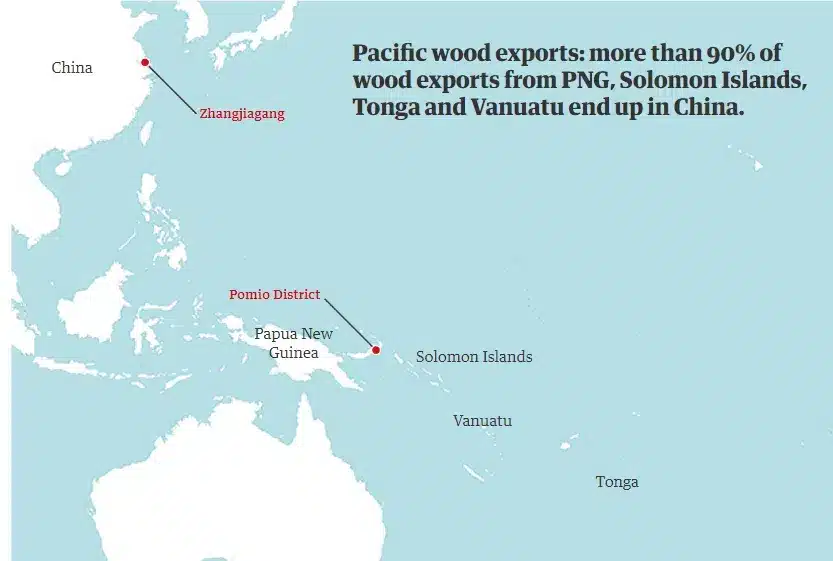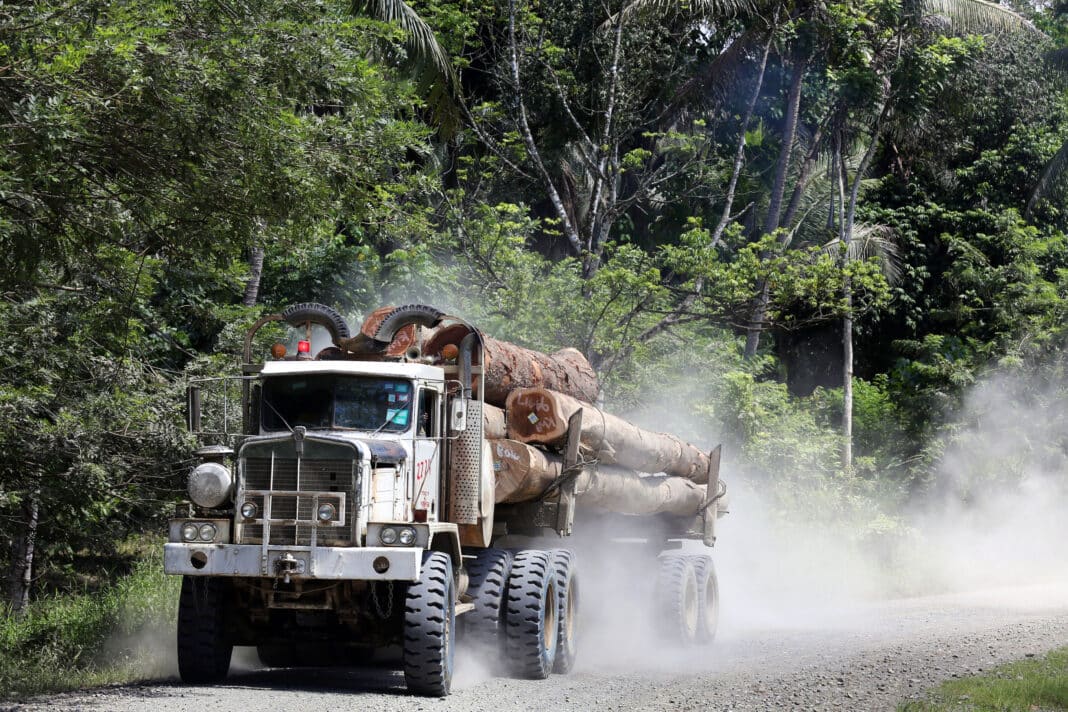Civil society groups and community representatives from across Papua New Guinea are demanding that the PNG government take action on the illegal timber trade – via the widespread abuse of Forest Clearing Authorities (FCAs).
As reported by Radio New Zealand (RNZ), more than one-third of all logs exported from the country’s forests come from logging authorised through an FCA permit. These permits are supposed to facilitate land clearance for agriculture or other land use changes.
However, civil society groups and organisations like the Institute of National Affairs point to a large body of evidence that they are being systematically abused to allow large-scale logging of vast tracts of forest.
According to environmental campaigners Act Now!, more than 20 FCA logging operations operate in eight provinces across PNG, contributing to widespread illegal and unsustainable logging.
A lawyer for the Centre for Environmental Law and Community Rights, Evelyn Katu Wohuinangu, said, “FCA permits issued under the Forestry Act are a vehicle being used to facilitate massive clear-felling of large tracts of tropical hardwood timber species by foreign-owned logging companies. Allegations of routine ignorance of our forestry laws and the lack of free, prior informed consent by forest communities have become a major concern.”
“In most cases, the large-scale agricultural activity that is supposed to be established is never implemented, or if it is, it is not economically viable and does not benefit the customary resource owners,” Wohuinangu said.

ENGOs argue that abuse of FCA’s has been widespread
PNG’s Institute of National Affairs executive director, Paul Barker, said the abuse of FCAs has been ongoing since the mechanism was introduced, sidestepping due process for forest management through proper resource planning, landowner consent and use of FMAs.
He said there needs to be action by multiple different agencies to stop the ongoing abuse, “the government must order an independent and transparent public inquiry into the legality of these FCA licences, which have continued to be rolled out, even after the SABL process was halted; the Forest Board should impose a moratorium on issuing any new licences and the fraud squad, or ICAC should investigate some of the more questionable FCA applications.”
Sem Vegogo from Wanigela in Oro Province said his community was devastated to learn a foreign logging company had been permitted to log their forests without informing them or obtaining their consent: “The people of Collingwood Bay have been fighting against illegal logging for decades. But despite numerous court victories, we see the PNG Forest Authority continually siding with Asian companies to try to steal our forests.”

David Mitchell from Eco-Custodian Advocates in Alotau has detailedly studied the Loani FCA logging project and says the company’s agriculture plans are fanciful:
“They are proposing a ten-fold increase in PNG’s balsa production but have not submitted any market analysis or costed business plans. They say they will establish 10,000 hectares of new cocoa planting, but their plans show that most of the area’s soils are only marginally suitable. Instead of clearing forest in the lowland areas that could be suitable for planting, they are building logging roads along the ridge lines”.
Pamela Avusi from the PNG Environmental Alliance said, “PNG has already suffered from too many decades of illegal and unsustainable logging and timber harvesting. The government needs to halt unsustainable logging if it wants to have any credibility on the international stage.”
In September, PNG Prime Minister James Marape told delegates at the UN General Assembly that PNG has up to 7% of the world’s biodiversity, much of it housed within its vast tropical rainforest: “We sustainably manage our forests, land, and sea because our livelihood depends on them,” he said at the time.
“My country has been contributing to the public or global discourse over the last two decades regarding environmental management and matters relating to climate change; unfortunately, this has been met with very little return of action. However, we continue to stand ready to assist the United Nations family in this area,” Prime Minister Marape said.
- To learn more about the PNG forest industry, click here for Wood Central’s special feature.






